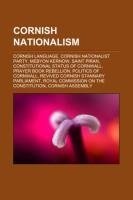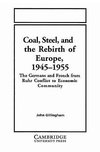
-
 Anglický jazyk
Anglický jazyk
Cornish nationalism
Autor: Source: Wikipedia
Source: Wikipedia. Pages: 61. Chapters: Cornish language, Cornish Nationalist Party, Mebyon Kernow, Saint Piran, Constitutional status of Cornwall, Prayer Book Rebellion, Politics of Cornwall, Revived Cornish Stannary Parliament, Royal Commission on the... Viac o knihe
Na objednávku, dodanie 2-4 týždne
18.63 €
bežná cena: 20.70 €
O knihe
Source: Wikipedia. Pages: 61. Chapters: Cornish language, Cornish Nationalist Party, Mebyon Kernow, Saint Piran, Constitutional status of Cornwall, Prayer Book Rebellion, Politics of Cornwall, Revived Cornish Stannary Parliament, Royal Commission on the Constitution, Cornish Assembly, Cornish Rebellion of 1497, Hundreds of Cornwall, Gorsedh Kernow, Saint Piran's Flag, Cornish currency, The Song of the Western Men, Thomas Flamank, Mummer's Day, Cornish National Liberation Army, Devonwall, Cornish kilts and tartans, Cornish Foreshore Case, St Piran's Day, Michael An Gof, Cornwall 2000, Cornish Constitutional Convention, Cornish Solidarity, Emmet, Federation of Old Cornwall Societies, Second Cornish Uprising of 1497, Kescusulyans Kernow, Unified Cornish, New Cornish Tertia army, Bro Goth agan Tasow, The Gear Rout, Hail to the Homeland, Cornish World. Excerpt: Cornish (Kernewek or Kernowek) is a Brythonic Celtic language and a recognised minority language of the United Kingdom, spoken in Cornwall. The language continued to function as a community language in parts of Cornwall until the late 18th century, and a process to revive the language was started in the early 20th century, continuing to this day. The revival of Cornish began in 1904 when Henry Jenner, a Celtic language enthusiast, published his book Handbook of the Cornish Language. In his work he observed, "There has never been a time when there has been no person in Cornwall without a knowledge of the Cornish language." Jenner's work was based on Cornish as it was spoken in the 18th century, although his pupil Robert Morton Nance later steered the revival to the style of the 16th century, before the language became more heavily influenced by English. This set the tone for the next few decades; as the revival gained pace, learners of the language disagreed on which style of Cornish to use, and a number of competing orthographies were in use by the end of the century. Nevertheless, many Cornish language textbooks and works of literature have been published over the decades, and an increasing number of people are studying the language. Recent developments include Cornish music, independent films and children's books. A small number of children in Cornwall have been brought up to be bilingual native speakers, and the language is taught in many schools. Cornish gained official recognition under the European Charter for Regional or Minority Languages in 2002, and in 2008 a Standard Written Form was agreed in an attempt to unify the orthographies and move forward the revival. The first Cornish language crèche opened in 2010. Cornish is one of the Brythonic languages, which constitute a branch of the Celtic languages. This branch also includes the Welsh, Breton, the extinct Cumbric, and perhaps the hypothetical Ivernic languages. The Scottish Gaelic, Irish, and Manx langu
- Vydavateľstvo: Books LLC, Reference Series
- Rok vydania: 2012
- Formát: Paperback
- Rozmer: 246 x 189 mm
- Jazyk: Anglický jazyk
- ISBN: 9781150961021





 Ruský jazyk
Ruský jazyk 






